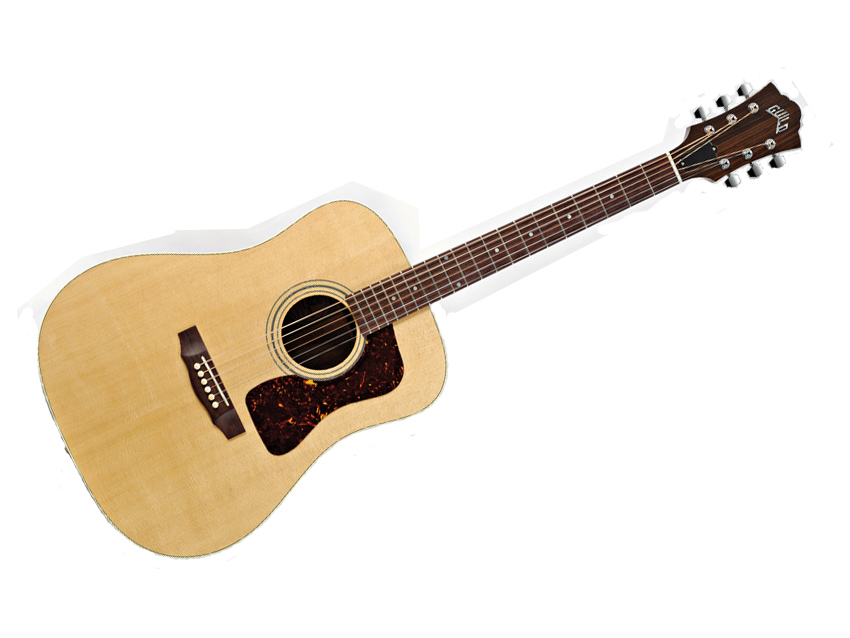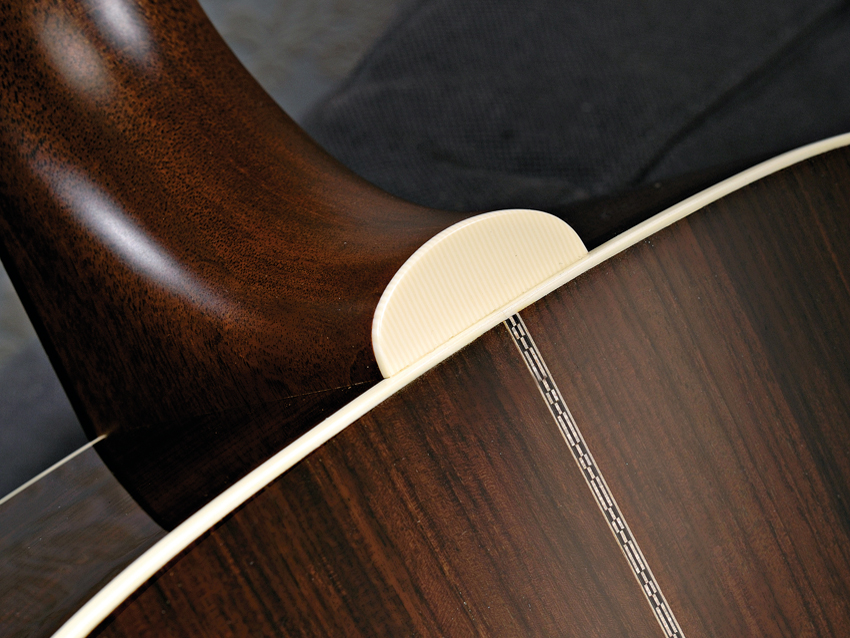MusicRadar Verdict
Expressive, lyrical, clear-toned - nailing the essential OM criteria.
Pros
- +
Picker-friendly neck. Fluid, precise tones.
Cons
- -
No second strap button.
MusicRadar's got your back

Guild F-30R Std

F-30R back view
At the turn of the century, Guild's acoustic focus seemed to be on its Asian-made mid-priced GAD Series. The GADs continue as a successful and important element of the catalogue, but the new emphasis on USA-made Guilds began in 2008.
Come 2010, the range has moved up a gear with the launch of the six-strong Guild Standard Series. These instruments are 'streamlined' or stripped- down versions of Traditional Series guitars, enabling more affordable prices. Cutaway electro versions of each are due this year.
"The sustainfully vibrant tone is warm and fluid, with silkily sunny highs, and the sound displays a delightfully smooth poise."
Meanwhile, Guild is keen to stress that cheaper doesn't mean inferior, pointing out, for instance, that these all- solid-wood guitars still employ red spruce bracing and bone nuts, saddles and bridge pins, and they all include a deluxe case.
It also refers to the designs' 'modern twist', exemplified by shallower neck profiles and revised heel taper for enhanced handling comfort, and die-cast rather than vintage-style open-backed tuners.
Looks
The OM-size F-30 dates back to Guild's very early days in 1954, but a rosewood-backed version didn't appear until 1967, as an exclusive made over a six-year period for Paul Simon. Regular F-30R production started in 1973, thereafter dropping in and out of the catalogue until it was discontinued in 2001, when Guild's Rhode Island factory closed.
The only Traditional Series rosewood variant available today is a special-run, fancily trimmed GSR F-30, which makes the new Standard version a significant debut.
The bridge has a faitly traditional belly design, with Sitka spruce/rosewood trim. The body binding and heel cap are ivoroid, and the finish is a combination of gloss body and satin neck. There's also a wood-mosaic centre strip down the back.
Want all the hottest music and gear news, reviews, deals, features and more, direct to your inbox? Sign up here.
The presentation is exemplary, and the top looks of the highest quality, with cross-silking and graining that, in the accepted manner, becomes progressively tighter towards the centre of the table.
Build-wise, befitting an OM's popularity as a picker, its span is a broad 44.5mm across the nut, with commensurately airy string spacing, though bridge spacing remains 55mm, which is perfectly adequate for accurate fingerstyle.
The shallowish profile - of pretty much constant depth all the way up - also has just a hint of a 'D' along the shoulders, giving an obliging and slick grip. Our sample's set-up and fret dressing are excellent.
Sounds
The smaller-bodied F-30R understandably lacks some of the volume and projecting poke of a dreadnought, but it's by no means a slouch in OM terms.
The sustainfully vibrant tone is warm and fluid, with silkily sunny highs, and the whole sound displays a delightfully smooth poise and articulation whether strumming or picking. Try it with various tunings - especially drop D or open G - and the guitar positively sings, making it an engaging and highly enjoyable player.
'Standard' could be interpreted as meaning 'adequate', but that's far from the case heres. Okay, it lacks a few Traditional Series features, but these are essentially cosmetic and don't detract one iota from them being great-sounding acoustics, simply yet elegantly styled, and crafted to a very high standard.
The 30-R earns its stripes as a great guitar, amply demonstrating that in no way is Guild letting its, er, standards slip. Indeed, it's very much the opposite.